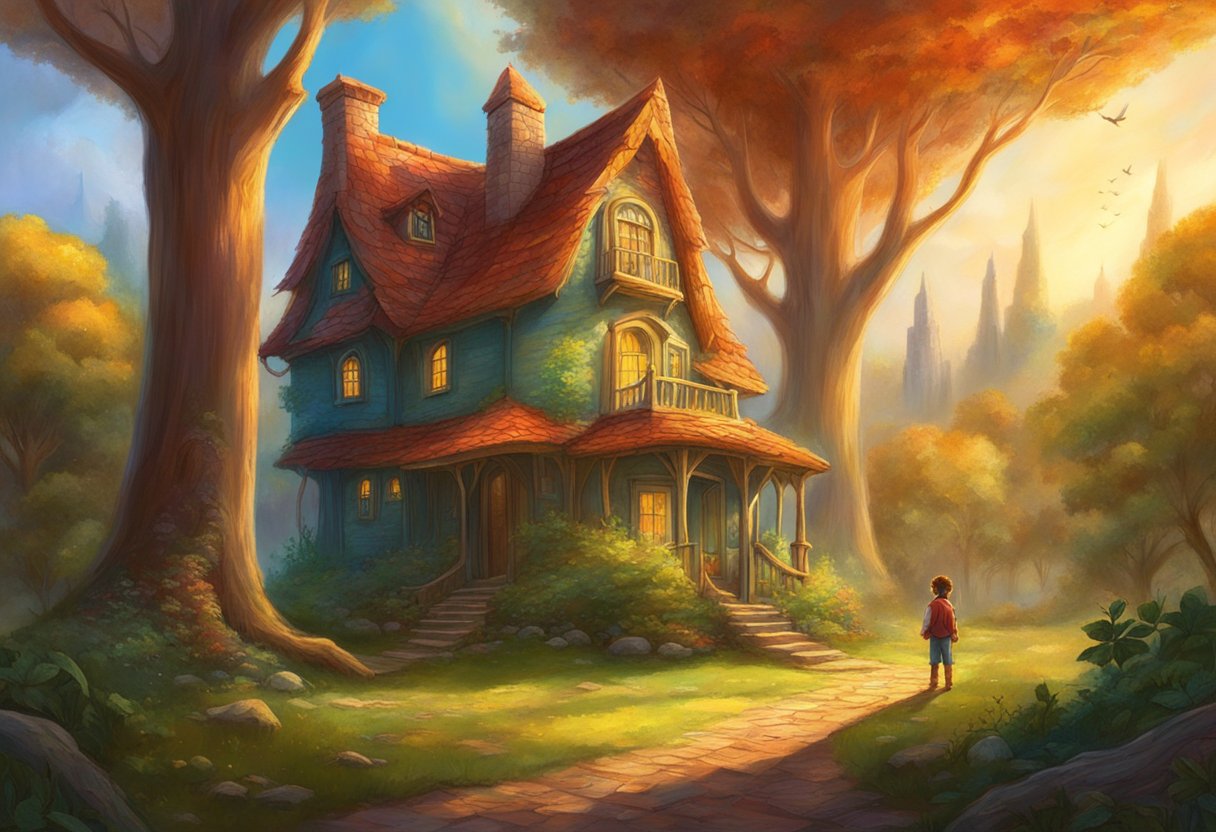Early Life and Education
Roger Corman was born in Detroit, Michigan, in 1926. He was the son of Anne and William Corman, an engineer. Corman grew up Catholic with his younger brother Gene, who later became a producer of numerous films, sometimes in collaboration with Roger.
Corman went to Beverly Hills High School, where he was a classmate of future film producer Irwin Winkler. After high school, Corman attended Stanford University to study industrial engineering. However, he found his true passion in film and started making amateur movies with his brother and friends.
In 1948, Corman transferred to the University of Southern California to study film. He learned the craft of filmmaking by working as a messenger at 20th Century Fox and as a script reader for independent producer Robert L. Lippert. Corman also made his own films on a shoestring budget, including his debut feature "Monster from the Ocean Floor" in 1954.
Corman's early experiences in the film industry taught him the importance of efficiency, resourcefulness, and creativity. He would become known for his ability to make low-budget films quickly and profitably, earning him the nickname "King of the B-movies."
Film Directing Career
Roger Corman's film directing career spanned over five decades, during which he directed and produced over 400 films, primarily in the horror, science fiction, and exploitation genres. His directorial style was known for being fast-paced, low-budget, and often controversial.
1960s Breakthrough
Corman's breakthrough as a director came in the early 1960s with his series of Edgar Allan Poe adaptations, starring Vincent Price. These films, including "The Pit and the Pendulum" and "The Masque of the Red Death," were critical and commercial successes, and helped establish Corman as a major figure in the horror genre.
Cult Classics
Throughout the 1960s and 1970s, Corman continued to direct and produce a string of cult classics, including "The Little Shop of Horrors," "The Wild Angels," and "Death Race 2000." These films often featured up-and-coming actors and actresses, such as Jack Nicholson, Peter Fonda, and Pam Grier, and helped launch their careers.
Mainstream Success
In the 1980s and 1990s, Corman began to move into more mainstream filmmaking, producing films such as "Rock 'n' Roll High School" and "The Silence of the Lambs." He also continued to direct, with films such as "Frankenstein Unbound" and "The Fantastic Four."
Despite his success, Corman never lost his reputation for being a maverick filmmaker who worked outside of the Hollywood system. His legacy as a director and producer continues to inspire generations of filmmakers who admire his ability to create compelling stories on a shoestring budget.
Producing Works
Roger Corman was a prolific producer, having produced over 350 films in his career. He was known for his ability to produce films quickly and cheaply, earning him the nickname "King of the B-Movies."
New World Pictures
Corman founded New World Pictures in 1970, which became a major player in the film industry during the 1970s and 1980s. The company produced and distributed a wide range of films, from low-budget horror movies to critically acclaimed dramas. Some of the notable films produced by New World Pictures include "Rock 'n' Roll High School," "Battle Beyond the Stars," and "The Howling."
Independent Film Movement
Corman was also a pioneer of the independent film movement. He gave many young filmmakers their start in the industry, including Francis Ford Coppola, Martin Scorsese, and James Cameron. Corman's low-budget approach to filmmaking inspired a generation of independent filmmakers, who followed in his footsteps and proved that it was possible to make successful films outside of the Hollywood studio system.
Corman's legacy as a producer continues to influence the film industry today. His ability to produce films quickly and cheaply, while still maintaining a high level of quality, remains an inspiration to independent filmmakers around the world.
Influence on Filmmaking

Roger Corman's influence on filmmaking is undeniable. He launched the careers of many prominent filmmakers and actors, and his low-budget model paved the way for a new era of independent cinema.
Launching Careers
Corman was known for giving opportunities to young, talented individuals who were looking to break into the film industry. He hired writers such as Francis Ford Coppola, Martin Scorsese, and James Cameron, and actors such as Jack Nicholson, Robert De Niro, and Bruce Dern. Corman's ability to recognize and nurture talent allowed these individuals to gain valuable experience and exposure, and many of them went on to become successful filmmakers and actors in their own right.
Low-Budget Model
Corman's low-budget model was revolutionary for its time. He was able to produce films quickly and cheaply, without sacrificing quality. His films often dealt with controversial subjects and pushed the boundaries of what was considered acceptable in cinema. Corman's ability to create compelling stories on a shoestring budget inspired a new generation of filmmakers to experiment with their own low-budget productions.
Overall, Roger Corman's impact on the film industry cannot be overstated. His willingness to take risks and his ability to recognize talent helped to shape the landscape of independent cinema.
Notable Collaborations
Roger Corman was known for giving many young actors and directors their start in the film industry. Throughout his career, he collaborated with numerous notable talents, helping to launch their careers.
Actors
One of Corman's most notable collaborations was with actor Jack Nicholson. Corman gave Nicholson his first leading role in the 1960 film "The Little Shop of Horrors," which helped launch Nicholson's career. The two went on to collaborate on several other films, including "The Raven" and "The Terror."
Another actor who got his start working with Corman was Robert De Niro. De Niro appeared in the 1963 film "The Wedding Party," which was one of his first film roles. Corman also gave early roles to actors such as Bruce Dern, Peter Fonda, and Dennis Hopper.
Directors
In addition to working with actors, Corman also collaborated with many up-and-coming directors. One of his most notable collaborations was with Francis Ford Coppola, who directed the 1963 film "Dementia 13" for Corman. Coppola went on to have a highly successful career, directing films such as "The Godfather" and "Apocalypse Now."
Corman also worked with directors such as Martin Scorsese, Ron Howard, and James Cameron early in their careers. Scorsese directed the 1972 film "Boxcar Bertha" for Corman, while Howard directed the 1977 film "Grand Theft Auto." Cameron got his start working as a production designer and second-unit director on several of Corman's films, before going on to direct blockbusters such as "Titanic" and "Avatar."
Overall, Corman's collaborations with actors and directors helped to launch the careers of many notable talents in the film industry.
Genres and Styles

Roger Corman was known for his prolific output of low-budget films in a variety of genres, including horror, science fiction, and exploitation. He started his career in the 1950s, producing and directing films that were often made quickly and cheaply, but still managed to capture the attention of audiences with their unique stories and visuals.
Corman's horror films often featured monsters and creatures that were created using practical effects, such as makeup and costumes. Some of his most notable horror films include "The Pit and the Pendulum" (1961) and "The Masque of the Red Death" (1964).
In science fiction, Corman explored themes of space travel, time travel, and alien invasions. His films often featured imaginative sets and costumes, as well as special effects that were ahead of their time. Some of his most notable science fiction films include "It Conquered the World" (1956) and "The Day the World Ended" (1955).
Corman also dabbled in other genres, such as biker films and exploitation. His film "The Wild Angels" (1966) is considered one of the first biker films, and helped to launch the career of Peter Fonda. In exploitation, Corman pushed the boundaries of what was considered acceptable in mainstream cinema, with films such as "The Trip" (1967), which explored the world of LSD use.
Overall, Corman's films were known for their unique style and willingness to take risks. He was a pioneer in the world of low-budget cinema, and his influence can still be seen in films today.
Awards and Recognition

Roger Corman's contributions to the film industry have earned him numerous awards and recognition. In 2010, he was awarded an Honorary Academy Award for his "indelible mark on the motion picture industry as a pioneering filmmaker and for his mentoring of young filmmakers."
Corman has also received a Lifetime Achievement Award from the Academy of Science Fiction, Fantasy & Horror Films, as well as the Independent Spirit Award's Producer Award. In addition, he has been inducted into the Hollywood Walk of Fame and the American Film Institute's Lifetime Achievement Award.
Corman's work has also been recognized internationally. He was the youngest producer/director to be given a retrospective at the Cinémathèque Française, and his films have been showcased at retrospectives at the British Film Institute and the Museum of Modern Art.
Throughout his career, Corman has been a mentor to many young filmmakers, including Francis Ford Coppola, Martin Scorsese, and Ron Howard. His influence on the film industry is immeasurable, and his legacy continues to inspire new generations of filmmakers.
Later Projects and Retirement

After a long and successful career in the movie industry, Roger Corman started to slow down in the later years of his life. In 2010, he directed his final film, "Dinoshark," which aired on Syfy. The movie, while not a critical success, was a testament to Corman's enduring passion for filmmaking.
In addition to his work in the film industry, Corman also served as a mentor to many aspiring filmmakers. He taught a course on film production at the University of Southern California for over a decade, where he shared his knowledge and experience with a new generation of filmmakers.
In his retirement, Corman continued to be recognized for his contributions to the film industry. In 2009, he was awarded an honorary Academy Award for his lifetime of work in independent filmmaking. He also received a star on the Hollywood Walk of Fame in 2011, cementing his place in the history of American cinema.
Despite his retirement, Corman remained active in the film community until his passing in 2024 at the age of 98. His legacy as a pioneer of independent filmmaking and a mentor to aspiring filmmakers will continue to inspire generations of filmmakers to come.
Legacy and Cultural Impact
Roger Corman's influence on the film industry cannot be overstated. His work as a producer and director has left a lasting legacy, particularly in the horror, science fiction, and crime genres. He was known for his ability to make films on a low budget and at a rapid pace, which allowed him to take risks and experiment with new ideas.
Corman's impact can be seen in the careers of many successful filmmakers who got their start working on his films. Some of the biggest names in Hollywood, including James Cameron, Francis Ford Coppola, and Martin Scorsese, got their start working with Corman. He also helped launch the careers of actors such as Jack Nicholson, Robert De Niro, and Peter Fonda.
Corman's films were often criticized for their low production values and exploitation of violence and sex. However, his work has since been reevaluated and recognized for its artistic merit and cultural significance. In 2009, Corman was awarded an honorary Oscar for his contributions to the film industry.
Corman's influence can also be seen in popular culture. Many of his films have been referenced or parodied in other films, TV shows, and music. For example, the title of Corman's film "The Fast and the Furious" was later used for a popular franchise of action films. Quentin Tarantino has cited Corman as an influence on his own work, and even made a cameo appearance in Corman's film "Pulp Fiction."
Overall, Roger Corman's impact on the film industry and popular culture is undeniable. His ability to take risks, work with a low budget, and launch the careers of many successful filmmakers and actors has left a lasting legacy that will continue to be felt for generations to come.
Frequently Asked Questions

What was Roger Corman's role in the film industry?
Roger Corman was a notable American film director, producer, and screenwriter who played a significant role in shaping the independent film industry. He was known for his low-budget productions, which often featured young and upcoming actors. Corman's films were known for their exploitation and horror themes, which appealed to a niche audience.
How many films has Roger Corman directed?
Roger Corman directed over 50 films during his career, which spanned over five decades. His most notable works include "The Little Shop of Horrors," "The Pit and the Pendulum," and "The Masque of the Red Death."
Which notable directors were mentored by Roger Corman?
Roger Corman was known for mentoring many notable directors, including Francis Ford Coppola, Martin Scorsese, Ron Howard, and James Cameron. Corman's influence on these directors is evident in their early works, which often featured themes and styles similar to those found in Corman's films.
What is Roger Corman's contribution to independent filmmaking?
Roger Corman is widely regarded as one of the pioneers of independent filmmaking. He was known for his ability to produce high-quality films on a shoestring budget, which helped to pave the way for other independent filmmakers. Corman's films were also known for their unconventional themes and styles, which challenged the conventions of mainstream Hollywood cinema.
Did Roger Corman have any collaborations with Francis Ford Coppola?
Roger Corman and Francis Ford Coppola had a long-standing professional relationship. Coppola worked as a scriptwriter and director for Corman's production company, American International Pictures, in the early 1960s. Corman also produced Coppola's directorial debut, "Dementia 13," in 1963.
Can you list the movies directed by Roger Corman in chronological order?
Here is a list of some of Roger Corman's most notable films in chronological order:
- "Five Guns West" (1955)
- "The Fast and the Furious" (1955)
- "The Little Shop of Horrors" (1960)
- "The Pit and the Pendulum" (1961)
- "The Masque of the Red Death" (1964)
- "The Wild Angels" (1966)
- "The Trip" (1967)
- "Bloody Mama" (1970)
- "Death Race 2000" (1975)
- "Battle Beyond the Stars" (1980)
Please note that this is not an exhaustive list of Corman's films and there may be other notable works that are not included here.




